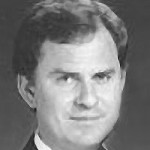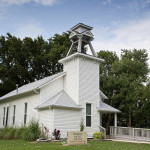 Randy McCarthy opened serviced reading from John 10:24-30. He then read from Mark 5:21-43 continuing the subject of “What manner of man is Jesus?”
Randy McCarthy opened serviced reading from John 10:24-30. He then read from Mark 5:21-43 continuing the subject of “What manner of man is Jesus?”
 Allen Daniels spoke about preservation of the saints. (John 10:25-30; Romans 8:29-39)
Allen Daniels spoke about preservation of the saints. (John 10:25-30; Romans 8:29-39)
Podcast: Download (Duration: 1:02:08 — 19.0MB)
 David Pyles
David Pyles
 Randy McCarthy
Randy McCarthy